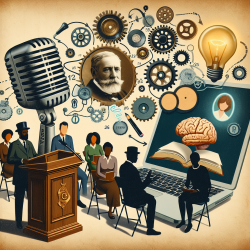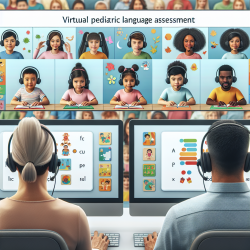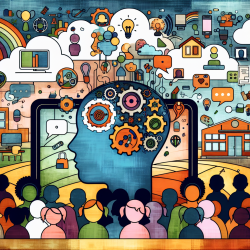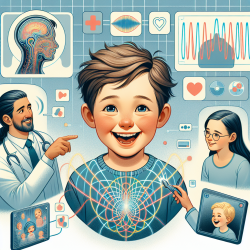Unlocking the Past to Shape the Future of Therapy
In the realm of speech-language pathology and online therapy services, it's crucial to continuously seek out evidence-based practices that can enhance our effectiveness as practitioners. While modern research often takes the spotlight, historical insights can also offer valuable lessons. One such example is the Morison Lectures on Mental Deficiency delivered by R. D. Clarkson in 1926 before the Royal College of Physicians of Edinburgh.
Why This Lecture Matters
Although delivered nearly a century ago, the Morison Lectures provide foundational insights into mental deficiency that remain relevant. Clarkson's observations and conclusions are not just historical artifacts; they are a call to action for today's practitioners to integrate past wisdom with current methodologies.
Key Takeaways from the Morison Lectures
- Understanding Developmental Delays: Clarkson emphasized the importance of recognizing developmental delays early. This aligns with current practices that stress early intervention as a critical factor in improving outcomes for children with speech and language challenges.
- Holistic Approach: The lectures advocated for a comprehensive approach to treatment, considering not just the symptoms but the whole child. This holistic view is crucial in today's therapy landscape, where personalized care plans are the norm.
- Data-Driven Decisions: Even in 1926, Clarkson highlighted the importance of data and observation in forming effective treatment plans. Today, this translates into using data analytics and evidence-based practices to tailor interventions that meet each child's unique needs.
Implementing Historical Insights in Modern Practice
As practitioners, we have the opportunity to blend historical insights with modern technology to create impactful therapy experiences. Here are some ways to incorporate these lessons:
- Early Intervention: Utilize screening tools and assessments to identify developmental delays as early as possible, just as Clarkson suggested.
- Comprehensive Assessments: Develop treatment plans that address the child's overall well-being, integrating insights from various disciplines.
- Leverage Technology: Use online platforms, like those offered by TinyEYE, to gather data and monitor progress, ensuring that interventions are effective and responsive to the child's needs.
Encouraging Further Research
While historical lectures provide a solid foundation, ongoing research is essential for advancing our understanding and improving therapy outcomes. Practitioners are encouraged to delve into both historical and contemporary research to continually refine their skills and approaches.
To read the original research paper, please follow this link: Morison Lectures on Mental Deficiency *Delivered before the Royal College of Physicians of Edinburgh on 1st, 3rd, and 5th March 1926.










